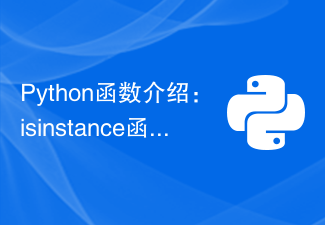The
off() function is used to remove one or more events bound to an element. Event handling function.
The off() function is mainly used to unblock the event processing function bound by the on() function.
This function belongs to the jQuery object (instance).
Syntax
jQuery 1.7 Added this function. It mainly has the following two forms of usage:
Usage one:
jQueryObject.off( [ events [, selector ] [, handler ] ] )
Usage two:
jQueryObject.off( eventsMap [, selector ] )
Parameters
Parameter Description
events Optional/String type one or more separated by spaces Event type and optional namespace, such as "click", "focus click", "keydown.myPlugin".
eventsMap Object type is an Object object, each attribute corresponds to the event type and optional namespace (parameter events), and the attribute value corresponds to the bound event processing function (parameter handler) .
selector Optional/String type A jQuery selector used to specify which descendant elements can trigger bound events. If this parameter is null or omitted, it means that the current element itself is bound to the event (the actual triggerer may also be a descendant element, as long as the event stream can reach the current element).
handler Optional/event handling function specified by Function type.
The off() function will remove the event handler of the events event bound to the descendant element selector on the current matching element.
If the selector parameter is omitted, the event handler bound to any element is removed.
The parameter selector must be consistent with the selector passed in when adding binding through the on() function.
If the parameter handler is omitted, all event handling functions bound to the specified event type of the specified element will be removed.
If all parameters are omitted, it means to remove any event handler function of any event type bound to any element on the current element.
Return value
off()The return value of the function is of jQuery type and returns the current jQuery object itself.
In fact, the parameters of the off() function are all filtering conditions, and only event processing functions that match all parameter conditions will be removed. The more parameters there are, the more qualifications there are and the smaller the range that is removed.
Example & Description
Please refer to the following initial HTML code:
First, we bind events to the above button and elements, and then use the off() function to unbind the event. The corresponding code is as follows:
function btnClick1(){
alert( this.value + "-1" );
}
function btnClick2(){
alert( this .value + "-2" );
}
var $body = $("body");
// Bind the click event of all button elements Event handling function btnClick1
$body.on("click", ":button", btnClick1 );
// Bind the event handling function btnClick2## to the click event of all button elements
#$body.on("click", ":button", btnClick2 );//Bind click, mouseover, mouseleave events for all a elements$body. on("click mouseover mouseleave", "a", function(event){ if( event.type == "click" ){ alert("click event"); }else if( event.type == "mouseover" ){ $(this).css("color", "red"); }else{ $(this).css("color", "blue"); }});// Remove the body element The event handler function btnClick2 bound to the click event of all button elements// Click the button, btnClick1 will still execute$body.off("click", ":button", btnClick2) ;// Remove all event handling functions (btnClick1 and btnClick2) bound by the body element to the click events of all button elements // Clicking the button will not execute any event handling functions // $body.off("click", ":button");// Note: $body.off("click", "#btn1"); cannot be moved Except for the click event of btn1, the selector specified by the off() function must be consistent with the selector passed in by the on() function. // Remove all handler functions bound by the body element to the click event of all elements (including button and elements) // Clicking a button or link will not Trigger the execution of any event handling function// $("body").off("click");// Remove all event bindings of the body element for all elements Processing function// Clicking a button, clicking a link, or moving the mouse in/out of a link will not trigger the execution of any event processing function
// $("body").off( );
Run the code (please copy other codes to the demo page to run)
In addition, the off() function can also remove only the event binding of the specified namespace.
var $btn1 = $("#btn1");
$btn1.on("click.foo.bar", function(event){
alert( "click-1");
});
$btn1.on("click.test", function(event){
alert("click-2 ");
});
$btn1.on("click.test.foo", function(event){
alert("click-3") ;
});
$btn1.off("click.test"); // Remove click-2, click-3
// $btn1. off("click.foo"); // Remove click-1, click-3
// $btn1.off("click.foo.bar"); // Remove click-1
// $btn1.off("click"); // Remove all click event handlers (click-1, click-2, click-3)
// $btn1. off(".foo"); // Remove all event handlers containing namespace foo, not just click events
The above is the detailed content of Take you to understand the detailed usage of jQuery.off() function. For more information, please follow other related articles on the PHP Chinese website!
 解析JSP注释的使用方法和分类Feb 01, 2024 am 08:01 AM
解析JSP注释的使用方法和分类Feb 01, 2024 am 08:01 AMJSP注释的分类及用法解析JSP注释分为两种:单行注释:以结尾,只能注释单行代码。多行注释:以/*开头,以*/结尾,可以注释多行代码。单行注释示例多行注释示例/**这是一段多行注释*可以注释多行代码*/JSP注释的用法JSP注释可以用来注释JSP代码,使其更易于阅
 如何正确使用C语言的exit函数Feb 18, 2024 pm 03:40 PM
如何正确使用C语言的exit函数Feb 18, 2024 pm 03:40 PMc语言exit函数怎么用,需要具体代码示例在C语言中,我们常常需要在程序中提前终止程序的执行,或者在某个特定的条件下退出程序。C语言提供了exit()函数来实现这个功能。本文将介绍exit()函数的用法,并提供相应的代码示例。exit()函数是C语言中的标准库函数,它包含在头文件中。它的作用是终止程序的执行,并且可以带一个整型
 Python函数介绍:abs函数的用法和示例Nov 03, 2023 pm 12:05 PM
Python函数介绍:abs函数的用法和示例Nov 03, 2023 pm 12:05 PMPython函数介绍:abs函数的用法和示例一、abs函数的用法介绍在Python中,abs函数是一个内置函数,用于计算给定数值的绝对值。它可以接受一个数字参数,并返回该数字的绝对值。abs函数的基本语法如下:abs(x)其中,x是要计算绝对值的数值参数,可以是整数或浮点数。二、abs函数的示例下面我们将通过一些具体的示例来展示abs函数的用法:示例1:计算
 Python函数介绍:isinstance函数的用法和示例Nov 04, 2023 pm 03:15 PM
Python函数介绍:isinstance函数的用法和示例Nov 04, 2023 pm 03:15 PMPython函数介绍:isinstance函数的用法和示例Python是一门功能强大的编程语言,提供了许多内置函数,使得编程变得更加方便和高效。其中一个非常有用的内置函数是isinstance()函数。本文将介绍isinstance函数的用法和示例,并提供具体的代码示例。isinstance()函数用于判断一个对象是否是指定的类或类型的实例。该函数的语法如下
 使用苹果快捷指令的方法Feb 18, 2024 pm 05:22 PM
使用苹果快捷指令的方法Feb 18, 2024 pm 05:22 PM苹果快捷指令怎么用随着科技的不断发展,手机已经成为了人们生活中不可或缺的一部分。而在众多手机品牌中,苹果手机凭借其稳定的系统和强大的功能一直备受用户的喜爱。其中,苹果快捷指令这一功能更是让用户们的手机使用体验更加便捷和高效。苹果快捷指令是苹果公司为其iOS12及更高版本推出的一项功能,通过创建和执行自定义指令,帮助用户简化手机操作流程,以达到更高效的工作和
 教你使用Win10的快捷键Dec 30, 2023 am 11:32 AM
教你使用Win10的快捷键Dec 30, 2023 am 11:32 AMwindows10常用快捷键可以为我们省去很多的时间,今天给大家介绍一些常用的快捷键用法,非常的方便快捷,下面一起来看看具体的使用方法吧。Win10快捷键用法介绍复制、粘贴和其他常规键盘快捷方式按此键执行此操作Ctrl+X剪切选定项Ctrl+C(或Ctrl+Insert)复制选定项Ctrl+V(或Shift+Insert)粘贴选定项Ctrl+Z撤消操作Alt+Tab在打开的应用之间切换Alt+F4关闭活动项,或者退出活动应用Windows徽标键+L锁定电脑Windows徽标键+D显示和隐藏桌面F
 解析SQL中使用distinct关键字Feb 18, 2024 pm 09:21 PM
解析SQL中使用distinct关键字Feb 18, 2024 pm 09:21 PMSQL中distinct用法详解在SQL数据库中,我们经常会遇到需要去除重复数据的情况。此时,我们可以使用distinct关键字,它能够帮助我们去除重复数据,使得查询结果更加清晰和准确。distinct的基本使用方法非常简单,只需要在select语句中使用distinct关键字即可。例如,以下是一个普通的select语句:SELECTcolumn_name
 使用Python中的assert语句Feb 19, 2024 am 09:45 AM
使用Python中的assert语句Feb 19, 2024 am 09:45 AMPython中的assert语句是一种用于检查程序内部逻辑错误的工具。它用于确保在程序执行过程中的某个点上的条件为真。如果条件为假,那么assert语句会抛出一个AssertionError异常,并终止程序的运行。assert语句的基本语法如下:assertcondition,message其中,condition是一个表达式,它的值必须为True,否则


Hot AI Tools

Undresser.AI Undress
AI-powered app for creating realistic nude photos

AI Clothes Remover
Online AI tool for removing clothes from photos.

Undress AI Tool
Undress images for free

Clothoff.io
AI clothes remover

AI Hentai Generator
Generate AI Hentai for free.

Hot Article

Hot Tools

Zend Studio 13.0.1
Powerful PHP integrated development environment

mPDF
mPDF is a PHP library that can generate PDF files from UTF-8 encoded HTML. The original author, Ian Back, wrote mPDF to output PDF files "on the fly" from his website and handle different languages. It is slower than original scripts like HTML2FPDF and produces larger files when using Unicode fonts, but supports CSS styles etc. and has a lot of enhancements. Supports almost all languages, including RTL (Arabic and Hebrew) and CJK (Chinese, Japanese and Korean). Supports nested block-level elements (such as P, DIV),

Notepad++7.3.1
Easy-to-use and free code editor

ZendStudio 13.5.1 Mac
Powerful PHP integrated development environment

VSCode Windows 64-bit Download
A free and powerful IDE editor launched by Microsoft






